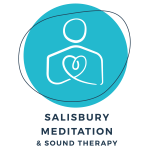Imagine waving a magic wand and bam! Crystal-clear memories, laser-sharp focus, and stress melting away like winter snow. You’d breeze through tasks, effortlessly achieve goals, and prioritize with ease. Suddenly, life feels calmer, clearer, and even a little more joyful. Sounds pretty amazing, right?
The good news? We might not have a magic wand, but something pretty close: meditation.
Achieving in-the-moment focus is possible, but we haven’t found the magic wand yet. Instead, like any new skill we’re trying to develop, it’s all about practice. Want to be better at tennis? Practice tennis. Want to improve your dancing? Dance more.
In the same vein, the more you focus while meditating, the better your ability to focus will become. When learning how to use meditation to improve memory and focus, there are a few things you might try. Check them out and see which ones are a good fit.
Breath and Focus
One of the most fundamental aspects of practicing meditation for focus is your breath. There are many ways to focus on the breath – you can be aware of each individual inhalation and exhalation or just focus on the out breath. In any case, be aware of each breath. Notice the sensation as cool air enters your nostrils as you inhale and warm air exits as you breathe out. Feel your lungs expand and contract. Note the gentle rise and fall of your belly as you breathe. Or count each cycle of your breath as one, continue up to seven if you can and then start over again at one. The point is not to be the world’s champion breath counter, but to encourage your mind to focus by using your breath as a support for your meditation training.
Freeze Frame
Make it a point to sit still during as much of your seated meditation session as possible. Whether you are on a chair or a cushion, keep your back straight with your head held upright. The newer you are to the practice of meditation, the more challenging this may be. If you’re like most people, you didn’t spend too much time focusing on your posture before you began meditating. You may never have noticed the body’s tendency to relax and sag – or that certain areas, such as the jaw, are stiff with tension. By paying attention and correcting your meditation posture, you are effectively working on your focus.

Image: https://www.calm.com/
Repeat After Me
Reciting mantras is a popular meditation technique. When practiced with an altruistic motivation, mantras can imbed strong, positive aspirations into your consciousness. Even on an elementary level, they can be used as a focus-improvement method. A simple mantra, such as silently repeating “Breathing in, I clear my mind” on the in-breath, followed by “Breathing out, I am free” on the out-breath can be very effective for this.
Hearing Voices
If your mind tends to wander while meditating, and let’s face it, whose doesn’t, a good guided meditation may keep you on track. Focus on the narrator’s words. Mindfully follow her peaceful and experienced voice as she leads you through a meditation session. You can find great Guided Meditations right here on Mindworks. Don’t allow the soothing quality of the practice put you to sleep – this is a great opportunity to stay focused, alert and relaxed.
A Handy Helper
You’ve seen those beaded bracelets on people’s wrists, right? They weren’t always trendy trinkets or worry beads – rosaries called “malas,” after the Sanskrit word for garland, they were originally designed for meditation practice. You can slip the mala off your wrist and slide one bead through your fingers to mark each breath or mantra. This is a great technique to help you remain focused on the meditative task at hand.
Take a Walk
Walking meditation can also improve focus and concentration. Set aside a few minutes to walk slowly and mindfully, paying attention to the movement and sensations of your legs and feet as they make contact with the earth and leave it again. Just as you notice your breathing during sitting meditation, pay attention to mindful walking. You can use physical sensations or awareness of sounds and other sensory input to hone your focus as you walk.

All of these methods are a pleasure to put into practice, and you’ll surely find at least one that works for you. But meditating to improve memory and focus isn’t just enjoyable and relaxing, science has shown that it works.
A very recent article in the Journal of Cognitive Enhancement presents research that suggests that intensive meditation training can offset the cognitive decline associated with aging. The authors conclude that “the present study suggests that intensive and continued meditation is associated with enduring improvements in sustained attention, supporting the notion that the cognitive benefits of dedicated mental training may persist over the long-term when promoted by a regimen of continued practice.”



Recent Comments